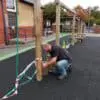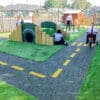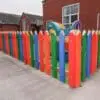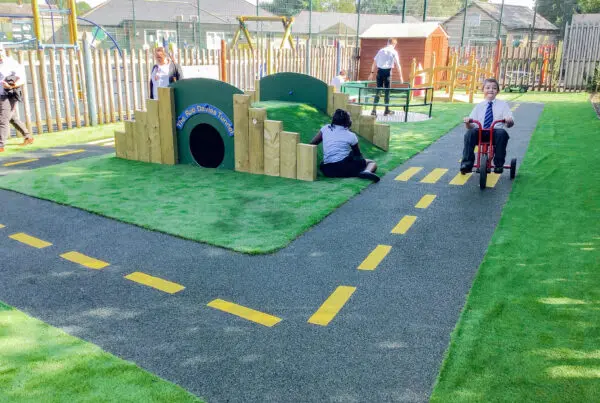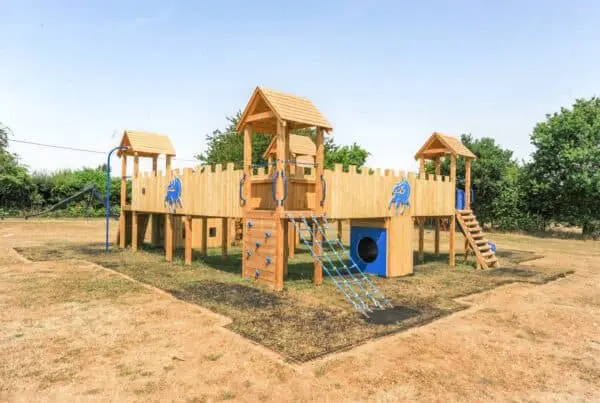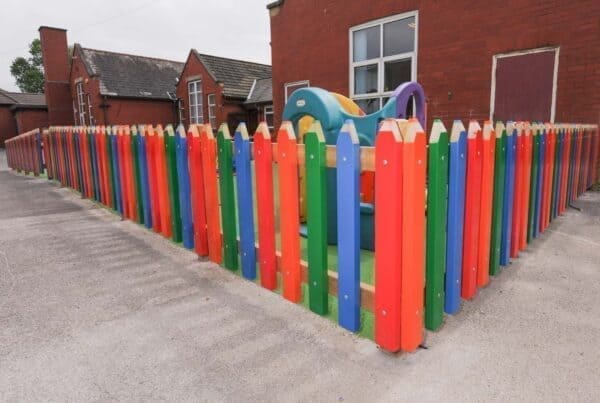Imaginative play has been introduced to children taking part in a pilot programme by Chuckle Productions, with some great results being found, validating the positive impact it has on children’s social skills and creativity.
This is an area of play that Sovereign is well practised in, reflected in our growing range of play equipment that has been researched and designed, manufactured and installed endlessly to encourage role-play and boost the development of children’s social skills.
We’re great believers in imaginative play and were excited to hear how Chuckle incorporated this into their playground sessions, which took place inside the classroom.
Jennie Hine at Chuckle Productions continues:
“Imaginative play is an important skill for negotiating the playground as children use role-play to explore the world around them, practice social situations and build their confidence to express themselves. We have been thrilled with the level of participation and imagination demonstrated by all the children. In particular, our children have impressed the team with their confidence in performing in front of their peers.”
Week 1 – introduction to imaginative play
In the first week, imaginative play began with a gentle introduction. Children were asked to get into pairs and choose a character that they’d like to be from a well known fairytale.
Each time their character was mentioned, they then had to cross over an imaginary river from one side of the classroom to the other.
Speaking about the benefits of the exercise, Jennie said: “This game was a great way to develop children’s listening skills and encouraged them to cross over the river in character. They were also given props to use. This had great initial results, with children becoming flamboyant ugly sisters and courageous woodcutters and wobbly grannies. In addition, we found that pairing the older children with a younger partner worked very well and produced some great interaction.”
Week 2 – group storytelling
Week two gave children the opportunity to build on what they had learnt in week one. This was developed on further, with children getting into groups and being given the task to shape their own story – with support from the Chuckle team and a large bag of props.
The pupils were encouraged to contribute their ideas to their group, listen to suggestions and agree on what they wanted in the story.
“It was great to see the children developing their collaboration skills, agreeing amongst themselves what props they would like and sharing and swapping these when one item was in demand. The end results were great fun to watch,” said Jennie. “One group created ‘Jack and the beanstalk’ with a twist, where a fairy came out of the golden gooses egg and turned the giant nice!”
Week three – break from the theme of imaginative play
Week four – contributing to a short play
After a week’s break from imaginative play, the pupils were provided with props and were asked to develop their own short play. The older pupils were more confident with putting forward their ideas. Some of the younger children needed direction and support from the team but were able to derive a story.
“During these sessions, the children were observed making contributions to their group’s story, acting out the story in front of the wider group; and trying to use their imagination independently. We particularly enjoyed how one group included audience participation by turning everyone into a frog at the end of the story – the audience, with great delight, leaped around in response,” said Jennie.
Week five – putting play into practice
In the final week of the half term, the group discovered how they’d ask to join a game, suggest to their peers to try a new game and how they might make a newcomer feel included in a game they were playing.
Role-play was used to practice the skills of breaking into games on the playground and including others. The pupils were split into teams to act out these scenarios, with each child having the opportunity to be the outsider.
Jennie ended: “The groups did very well with all pupils happily undertaking the role of the newcomer. Our focus pupils were able to use some good phrases, for example, ‘can I play the game with you?’, ‘what are the rules?’ and support pupils seemed well versed in how to make newcomers included. However, there was an overall tendency to lapse into the group noticing the lonely child rather than the outsider initiating conversation. Therefore, this type of activity will be revisited next term, this time focusing on the outsider initiating conversation.”
To learn more about the Chuckle Productions initiative, click here.

